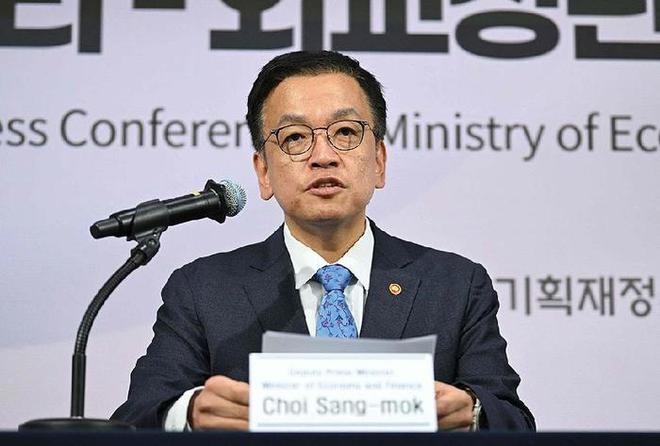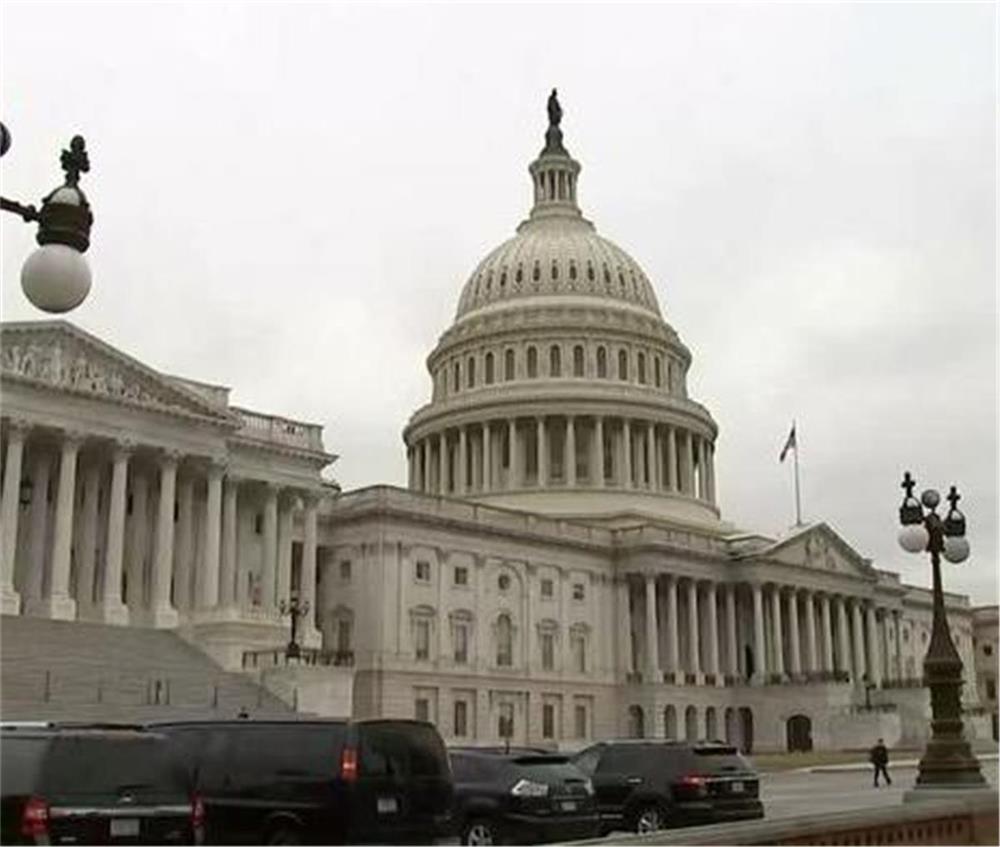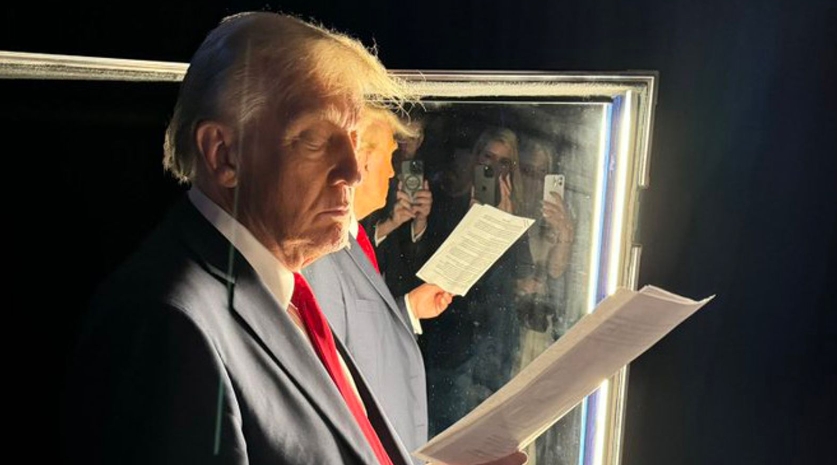Yoon Suk-yeol Proclaims "Fight Until the End" As Supporters of Impeached President Lie Down Outside Presidential Residence

South Korean President Yoon Suk-yeol's supporters lay down on the road in front of the presidential residence in central Seoul on Monday to prevent the arrest of their leader, three days after a court issued his arrest warrant and a day after Yoon vowed to "fight until the end."
The standoff between Yoon's supporters and opponents has escalated to new heights, with hundreds of thousands of people from both sides converging on Seoul for rallies. Yoon's supporters lay down in front of the presidential residence in an attempt to block the execution of the warrant, while the country's largest opposition party, Democratic Party (DP), received a threatening phone call claiming that its chairman, Lee Jae-myung, had been targeted for assassination. The headquarters of the ruling People Power Party (PPP) also received a bomb threat. "Yoon's message could further energize some far-right elements and push society toward extreme conflict, which could paralyze public power," said a professor of politics and diplomacy at Incheon National University, cited by Yonhap News Agency on Monday.
Image: AFP
Yoon's supporters lay down on the road in front of the presidential residence in Seoul to block the execution of his arrest warrant on January 2
On Monday, hundreds of thousands of Yoon's supporters gathered in front of the presidential residence in Seoul's Jongno District, aiming to block the execution of the warrant. Around midday, the protesters stormed through police lines and lay down on the road in front of the residence's main gate in an effort to prevent officials from the Special Prosecutor's Office (SPC), which is tasked with arresting Yoon, and their vehicles from entering. After police ordered them five times to disperse, some protesters refused and clashes broke out. Police then forcibly dispersed the crowd and arrested several protesters.
Image: AFP
Police pull away a Yoon Suk-yeol supporter at the presidential residence in Seoul on January 2
Meanwhile, anti-Yoon protesters also held a large rally in central Seoul on Monday afternoon, demanding Yoon's immediate arrest.
In a video message to his supporters on Sunday, Yoon pledged to "fight until the end," saying: "South Korea is in grave danger. I will fight to the end to protect you and our country."
On Monday, Yoon's lawyer, Yun Ga-geun, argued that the arrest and search warrants issued by a Seoul court on December 31 violated the country's criminal procedure law and constitution, asking the court not to approve them. Since the arrest warrant was issued, Yoon's camp has consistently argued that the SPC has no authority to investigate Yoon on charges of sedition and that carrying out the order would violate the president's immunity. They have also filed an application with the constitutional court to stay enforcement of the arrest warrant.
Meanwhile, the opposition DP argued that Yoon's vow to "fight until the end" constituted incitement. "The message was a dangerous signal that could provoke supporters to physical clashes," said Joo Seong-rae, spokesperson for the DP. "We must arrest the seditious ringleader as soon as possible, and Yoon knows full well that he is the one who has incited extreme conflict by using his supporters as human shields for his imminent arrest."
Kim Eui-kyeom, a former senior PPP member who quit the party last month and became the DP's presidential candidate in this year's election, also expressed concern that Yoon's message could trigger violence. "We have no choice but to arrest him as soon as possible," Kim said. "If he is arrested, his supporters might try to stop the arrest, which could lead to a clash."
Image: AFP
Protesters block the entry to the presidential residence in Seoul on January 2
In an apparent attempt to prevent anyone from interfering with Yoon's arrest, the SPC's chief Woo Dong-eun previously warned that anyone who attempted to block authorities from arresting Yoon, such as by blocking roads or locking gates, would face prosecution for obstruction of public officials.
Yoon's arrest is expected to take place in the coming days, with the SPC insisting that it will execute the arrest order before its validity expires on January 6. The agency and the National Police Agency, which have formed a joint investigation team, had originally planned to raid the presidential residence in the afternoon on Monday, but the Presidential Guard Corps, citing security concerns, has prevented the SPC from entering the residence and executing Yoon's arrest warrant.
Violent rhetoric spreads
Violent rhetoric, threatening calls, and bomb threats have spread across both parties. "The violent remarks and threats from Yoon's camp have intensified, as well as attempts to disrupt public order and arrest operations," said Kim Eui-kyeom, the DP presidential candidate. "This is an ominous sign that South Korea is heading toward a violent conflict that could lead to dictatorship and even civil war."
South Korea's ruling PPP received a bomb threat on Monday morning. The police sent more than 20 officers and sniffer dogs to search the party's headquarters after receiving a call claiming that explosives had been planted in the building, but the search turned up no suspicious objects.
The DP also received a threatening call on Monday afternoon claiming that Lee Jae-myung, the party's chairman, had been targeted for assassination. "We are very concerned that Yoon's message to his supporters, which raised fears of extreme conflict and chaos, is becoming a reality," said Joo Seong-rae, the DP's spokesperson. "The hatred and madness of the far-right that wants to overthrow democracy will destroy South Korea's democracy."
Images: AFP; Reuters
A Yoon Suk-yeol supporter holds up a placard at a protest in Seoul on January 2 (left); a protester participates in a rally against Yoon in Seoul on January 2 (right)
Meanwhile, violent rhetoric has been spreading across social media, with one Yoon supporter, a former producer at a television broadcasting company, posting on a pro-Yoon social media channel: "If you ignite a gasoline can, it will explode like a bomb. It will burn everything around you and kill anyone who stands in its way. Go ahead, try it out. You'll be surprised at the power of it."
A spokesman for the DP called on the government to respond strongly to the assassination and bombing threats. "South Korea should not be dragged into an abyss of political terror and violence without being able to punish such threats," said Joo Seong-rae, the DP's spokesperson. "The government must firmly punish such threats and not allow itself to be paralyzed by them. Otherwise, South Korea will become a country where anything goes."
Urgent calls for government stability
Acting President Choi Seong-mu urged all public officials to make efforts to stabilize the government and allow ordinary people to lead normal lives, saying that South Korea is "in an unprecedentedly serious situation," as his administration held its first government-wide meeting of the year on Monday.
Choi said that the rapidly changing international situation has caused South Korea to "face new challenges in terms of our trade and economy, as well as diplomacy and national security." He also noted that "the political uncertainty in our country is making the people anxious," without directly mentioning the arrest warrant issued for Yoon.
On Monday, the constitutional court called on the government to quickly fill the vacancy and appoint the remaining one judge to restore the nine-member system of the court. The court has only six judges at present, after the three incumbent judges' terms ended last year. Two new judges appointed by the acting president, Jeong Gwi-seom and Jo Han-chan, officially started their work on Monday, but one vacant judge post remains. The constitutional court is set to hold the second preliminary session on the impeachment trial of Yoon on January 3.
 Famous Persons
Famous Persons English
English
 Kelly
Kelly Facebook
Facebook Twitter
Twitter Pinterest
Pinterest Linkin
Linkin Email
Email Copy Link
Copy Link










